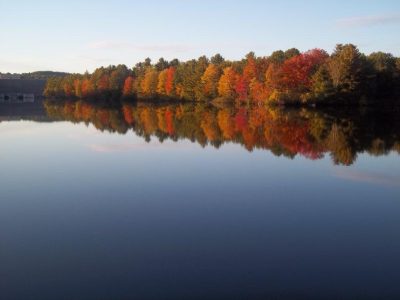The Pemigewasset River
The Pemigewasset River, nestled in the scenic landscape of New Hampshire, is a captivating waterway renowned for its natural beauty and recreational opportunities. Flowing through the heart of the White Mountains into the Lakes Region, the river stretches approximately 65 miles, winding its way through forests, valleys, and picturesque towns. Popular tourist spots such as Flume Gorge bring many thousands of visitors every year to gaze at its sparkling waterfalls.
Known for its clear waters and diverse habitats, the Pemigewasset River supports a rich ecosystem teeming with wildlife. Anglers are drawn to its waters year-round, with opportunities to catch a variety of fish species, including trout, salmon, bass, and panfish.
Beyond fishing, the Pemigewasset offers a host of recreational activities, including boating, kayaking, canoeing, and paddleboarding. Whether navigating gentle currents or tackling mild rapids, boaters can immerse themselves in the river’s tranquil ambiance while enjoying the scenic beauty of the surrounding landscape.
The river also serves as a vital water source for local communities and supports various outdoor recreation opportunities, including hiking, camping, and wildlife viewing along its banks. Its serene waters and lush surroundings make it a popular destination for outdoor enthusiasts seeking adventure and relaxation in nature.
Starting at Profile Lake, the Pemi River gets wider and deeper as it travels south until it finally merges with the Winnipesaukee River in the town of Franklin NH. Thereafter it is the Merrimack River until it finally empties into the Atlantic Ocean at Newburyport, Massachussetts. Except for a 10 mile section between Lincoln and Woodstock, the entire Pemigewasset River is part of the New Hampshire Rivers Management and Protection Program.
Historically, the Pemigewasset River was of major importance to the communities through which it passes. Before any roads were built, the river was the primary means of transportation, so that villages and towns naturally grew along its banks, especially at the confluence with other rivers. The Pemi river was also heavily used for fishing and provided hydro power for mills along its banks. When roads (and later railroads) were eventually built in this area of New Hampshire, the rugged terrain made the Pemi River valley the easiest route, contributing to the growth of towns located along the river.
Pemigewasset River article by Pemi Shore Cottages.


